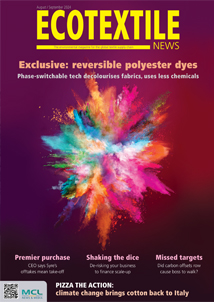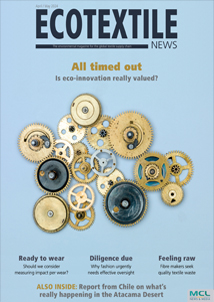BRUSSELS – A study commissioned by an arm of the European Recycling Industries’ Confederation (EuRIC) has estimated that the environmental impact of sorting and reusing garments is 70 times lower than manufacturing new ones.
Lifecycle assessments (LCAs) were conducted on virgin and secondhand t-shirts of three compositions to understand their associated emissions and water requirements, highlighting that the production of new fibres and garments are key contributors to an item’s impact.
“This study endorses the environmental benefits of a global market for textile reuse and recycling’s potential to tackle the rising amounts of low-quality and non-reusable clothing,” commented Mariska Boer, EuRIC Textiles’ president.


















































